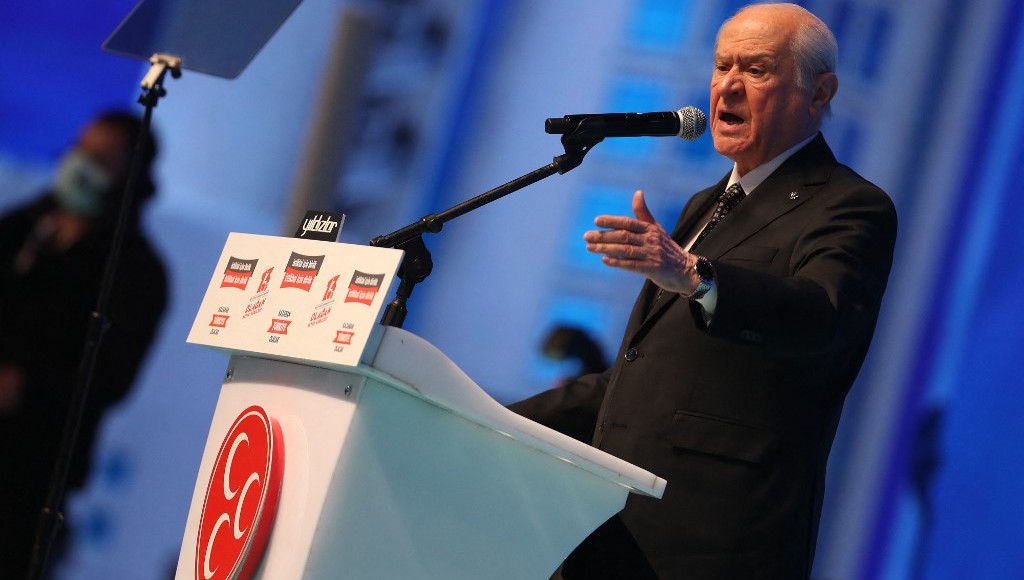Leader of Turkey’s far-right Nationalist Movement Party (MHP) Devlet Bahçeli has suggested that businessman Osman Kavala, whose imprisonment has strained ties between Turkey and the West, should be stripped of Turkish citizenship and sent into exile once he is out of jail.
Philanthropist and activist Kavala, 64, who has yet to be convicted by a court, has been in prison since 2017. Turkey and several Western countries barely escaped a diplomatic crisis after 10 ambassadors released a statement on Oct. 18 calling for Kavala’s release on the fourth anniversary of his arrest.
Turkish President Recep Tayyip Erdoğan over the weekend threatened to expel the ambassadors, accusing them of interfering in Turkey’s internal affairs; however, he stepped back from his threats on Monday after the United States and several of the other concerned countries issued identical statements saying they respected a UN convention that required diplomats not to interfere in the host country’s domestic affairs.
“Our suggestion regarding Kavala is this: This pro-Soros person should first serve his sentence in Turkey if he is convicted, then he should be stripped of Turkish citizenship and sent to one of the countries of the 10 ambassadors,” Bahçeli said at a meeting of his party on Tuesday.
The MHP leader, who is a close ally of Erdoğan, said no envoy of a foreign country can be allowed to interfere in Turkey’s internal affairs.
Like his ally Erdoğan, Bahçeli was pointing to an alleged link between Kavala and Hungarian-born US financier George Soros, whose promotion of democracy has upset eastern and central European leaders.
“Those who defend this Soros leftover are working on ways on how to free him,” Erdoğan said following the ambassadors’ statement.
Erdoğan on Monday evening met with Bahçeli, and then chaired an hours-long cabinet meeting at which his ministers reportedly advised him about the economic dangers of escalating tensions with some of Turkey’s closest allies and trading partners.
He concluded the meeting by victoriously announcing in televised comments that the 10 ambassadors had learnt their lesson and “will be more careful now.”
“Our intention is absolutely not to create a crisis but to protect our honor, our pride, our sovereign rights,” Erdoğan said.
The ambassadors of the US, Germany, Canada, Denmark, Finland, France, the Netherlands, New Zealand, Norway and Sweden had called for a “just and speedy resolution to (Kavala)’s case.”
The 10 envoys were summoned to the Turkish Foreign Ministry the next day.
Kavala has faced a series of shifting charges linked to 2013 anti-government protests and a failed military coup in 2016.
The Council of Europe issued a final warning to Turkey in September to comply with a 2019 European Court of Human Rights order to release Kavala pending trial.
If Turkey fails to do so by its next meeting on Nov. 30-Dec. 2, the council could vote to launch its first disciplinary proceedings against Ankara.
The proceedings could result in the suspension of Turkey’s voting rights and even its membership.


